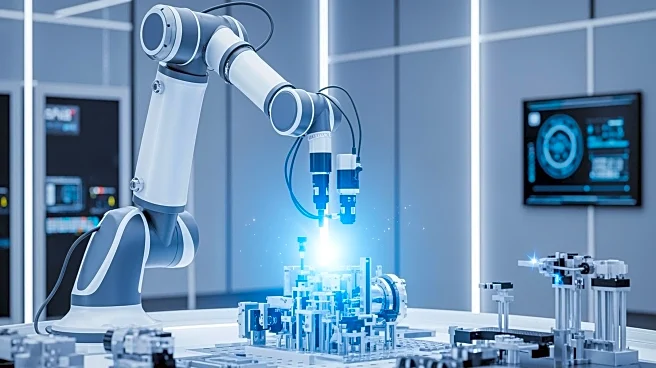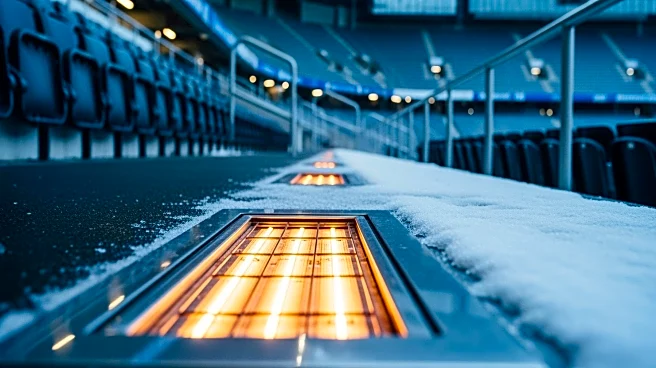What's Happening?
Industrial maintenance leaders are increasingly adopting artificial intelligence (AI) to tackle challenges such as rising costs, talent shortages, and the gap between preventive maintenance strategy and execution.
According to a survey by MaintainX, 71% of facilities have an active preventive strategy, yet only 58% dedicate more than half of their maintenance time to preventive work. AI is being used to streamline operations and improve efficiency, with 44% of respondents already implementing AI in some capacity. The technology is not intended to replace technicians but to assist them in performing their jobs more efficiently. The survey highlights the importance of practical training and engagement with frontline workers to ensure successful implementation of preventive strategies.
Why It's Important?
The adoption of AI in industrial maintenance is crucial for addressing the growing skills gap and rising labor costs. As experienced technicians retire, capturing and sharing their knowledge becomes vital for organizational survival. AI can help bridge this gap by providing tools that enhance efficiency and reduce downtime costs, which have risen due to machine wear and macroeconomic factors like tariffs. By improving parts and inventory management, maintenance professionals can better safeguard operations against uncertainties. The integration of AI also reflects a broader trend in industries seeking to modernize operations and remain competitive in a rapidly evolving technological landscape.
What's Next?
As AI continues to be integrated into maintenance operations, companies will need to focus on selecting the right use cases and processes for implementation. This involves being tactical in adopting AI solutions that address specific problems rather than attempting to automate everything. Organizations will also need to invest in training and engaging their workforce to ensure that AI tools are used effectively. The ongoing evolution of equipment will require maintenance workers to develop varied skill sets, combining mechanical and digital expertise. Companies must also plan for uncertainties in inventory and supply chain management to mitigate the impact of rising costs and potential disruptions.
Beyond the Headlines
The shift towards AI in industrial maintenance raises ethical and cultural considerations, particularly regarding the role of human workers and the preservation of 'tribal knowledge.' As AI becomes more prevalent, organizations must balance technological advancement with the need to retain and document the expertise of experienced technicians. This transition also highlights the importance of leadership in setting the tone for successful strategy execution and ensuring that frontline workers are equipped with the necessary tools and training.









